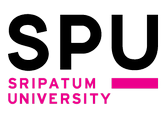Please use this identifier to cite or link to this item:
http://dspace.spu.ac.th/handle/123456789/7663Full metadata record
| DC Field | Value | Language |
|---|---|---|
| dc.contributor.author | สุบิน ยุระรัช | th_TH |
| dc.date.accessioned | 2021-06-28T10:43:59Z | - |
| dc.date.available | 2021-06-28T10:43:59Z | - |
| dc.date.issued | 2564-01-01 | - |
| dc.identifier.citation | สุบิน ยุระรัช. (2564). การปลูกฝังกรอบความคิด เรื่อง ความรู้คู่คุณธรรม ให้กับนักศึกษาปริญญาตรีโดยใช้ปรัชญาของเศรษฐกิจพอเพียง. วารสารอิเล็กทรอนิกส์ทางการศึกษา (An Online Journal of Education: OJED) คณะครุศาสตร์ จุฬาลงกรณ์มหาวิทยาลัย, ปีที่ 16 ฉบับที่ 1 (มกราคม-มิถุนายน 2564), หน้า 1-15. | th_TH |
| dc.identifier.issn | 1905-4491 | - |
| dc.identifier.uri | http://dspace.spu.ac.th/handle/123456789/7663 | - |
| dc.description.abstract | การวิจัยนี้มีวัตถุประสงค์ 3 ข้อ คือ (1) เพื่อศึกษาระดับของการใช้ปรัชญาของเศรษฐกิจพอเพียงในการดำเนินชีวิต (2) เพื่อวิเคราะห์ตัวแปรที่มีอิทธิพลต่อการใช้ปรัชญาของเศรษฐกิจพอเพียงในการดำเนินชีวิต และ (3) เพื่อนำเสนอแนวทางการปลูกฝังกรอบความคิดเรื่อง ความรู้คู่คุณธรรม การวิจัยเชิงปริมาณ ตัวอย่าง คือ นักศึกษาระดับปริญญาตรี จำนวน 390 คน การวิจัยเชิงคุณภาพ ผู้ให้ข้อมูลสำคัญ จำนวน 6 คน เครื่องมือวิจัยมี 3 ฉบับ ได้แก่ แบบสอบถาม แบบสัมภาษณ์เชิงลึก และแบบบันทึกภาคสนาม ผลการวิจัยพบว่า (1) นักศึกษาใช้ปรัชญาของเศรษฐกิจพอเพียงในการดำเนินชีวิตอยู่ในระดับมากโดยนำหลักของความพอประมาณ ความมีเหตุผล และการมีภูมิคุ้มกัน ไปประยุกต์ใช้ในการเรียนและการใช้ชีวิต (2) ความมุ่งมั่นมีอิทธิพลทางตรงต่อการใช้ปรัชญาของเศรษฐกิจพอเพียงในการดำเนินชีวิต การรับรู้ผลของพฤติกรรมมีอิทธิพลทางตรงต่อความมุ่งมั่น และมีอิทธิพลทางตรงต่อเจตคติต่อการใช้ปรัชญาของเศรษฐกิจพอเพียง การรับรู้ผลของพฤติกรรมมีอิทธิพลทางอ้อมต่อการใช้ปรัชญาของเศรษฐกิจพอเพียง และ (3) แนวทางการปลูกฝังกรอบความคิด เรื่อง ความรู้คู่คุณธรรม มี 5 ขั้นตอน ได้แก่ (1) การบ่มเพาะ (2) การสร้างการรับรู้ (3) การฝึกปฏิบัติ (4) การถอดบทเรียน และ (5) การสร้างองค์ความรู้และองค์ความคิด โดยดำเนินการผ่านกระบวนการจัดการเรียนการสอนในรายวิชาที่น้อมนำปรัชญาของเศรษฐกิจพอเพียงมาประยุกต์ใช้ Three main objectives of this research were (1) to study the level of the use of Philosophy of Sufficiency Economy (PSE) for living, (2) to analyze the variables effecting on the use of PSE for living, and (3) to propose the guidelines of the mindset cultivation of “Knowledge with Virtue” by using PSE. For quantitative analysis (QUAN), the sample consisted of the 390 bachelor’s degree students. For qualitative analysis (qual), the sample consisted of six key informants. Three types of research instruments were included: a questionnaire, an in-depth interview form, and a field note. The research findings were as follows: (1) PSE was used by the students at high level by applying the principles of Moderation, Reasonableness, and Self-Immunity to their study and living, (2) intention directly effects on the use of PSE for living, behavioral perception directly effects on the intention and on attitude towards the use of PSE for living, the behavioral perception indirectly effects on the use of PSE for living, and (3) the guidelines of mindset cultivation of knowledge with virtue were five steps comprising Step 1: Incubation, Step 2: Perception, Step 3: Exercise, Step 4: Lesson Learned, and Step 5: Construction of Knowledge and Thinking Bodies by carrying out through the teaching and learning process in which the Philosophy of Sufficiency Economy is applied. | th_TH |
| dc.description.sponsorship | มหาวิทยาลัยศรีปทุม | th_TH |
| dc.language.iso | th | th_TH |
| dc.publisher | คณะครุศาสตร์ จุฬาลงกรณ์มหาวิทยาลัย | th_TH |
| dc.subject | ความรู้คู่คุณธรรม, ปรัชญาของเศรษฐกิจพอเพียง, การวิเคราะห์เส้นทาง, กรอบความคิด | th_TH |
| dc.subject | knowledge with virtue, philosophy of sufficiency economy, path analysis, mindset | th_TH |
| dc.title | การปลูกฝังกรอบความคิด เรื่อง ความรู้คู่คุณธรรม ให้กับนักศึกษาปริญญาตรี โดยใช้ปรัชญาของเศรษฐกิจพอเพียง | th_TH |
| dc.type | Article | th_TH |
| Appears in Collections: | S_RES-02. บทความวิชาการ/วิจัย (วารสารระดับชาติ) | |
Files in This Item:
| File | Description | Size | Format | |
|---|---|---|---|---|
| สุบิน ยุระรัช-OJED-16(1)-1-15.pdf | 337.71 kB | Adobe PDF | View/Open |
Items in DSpace are protected by copyright, with all rights reserved, unless otherwise indicated.
